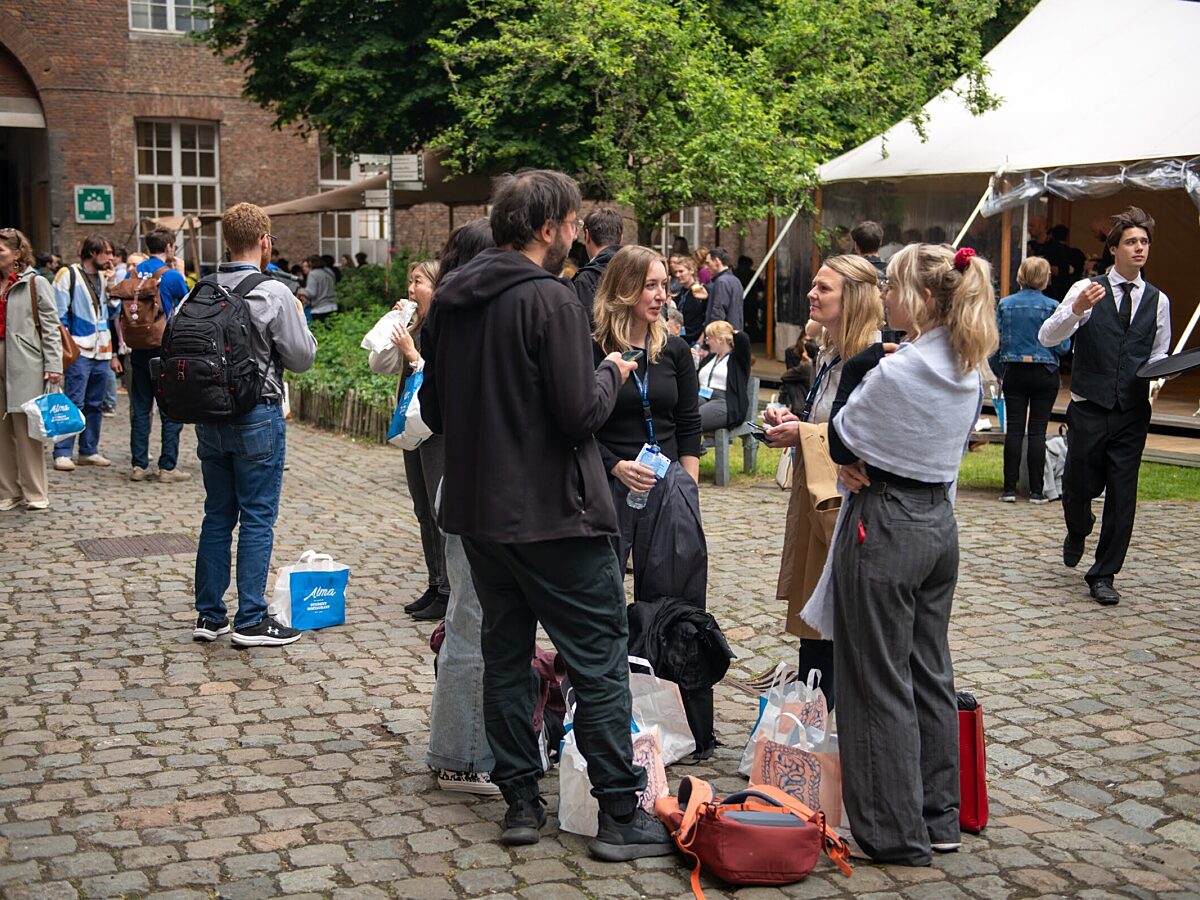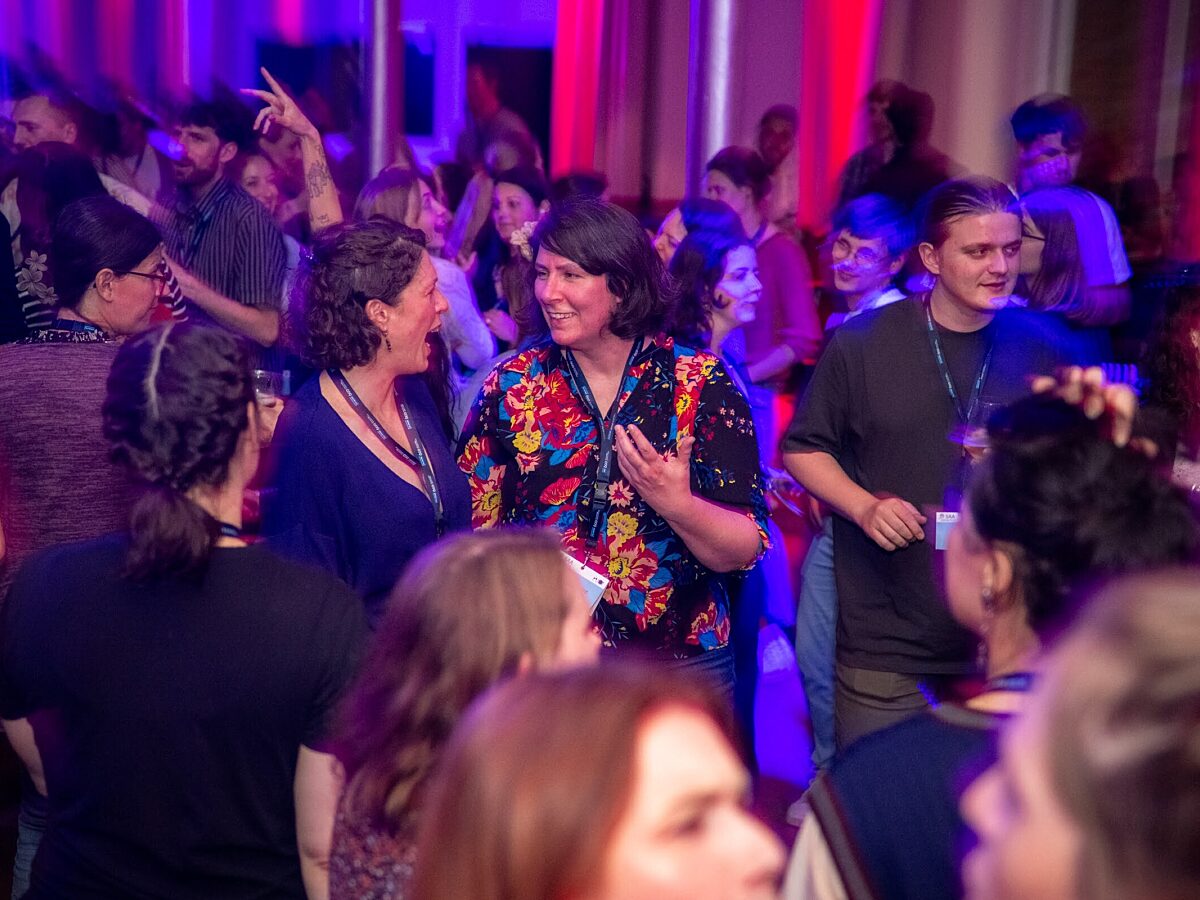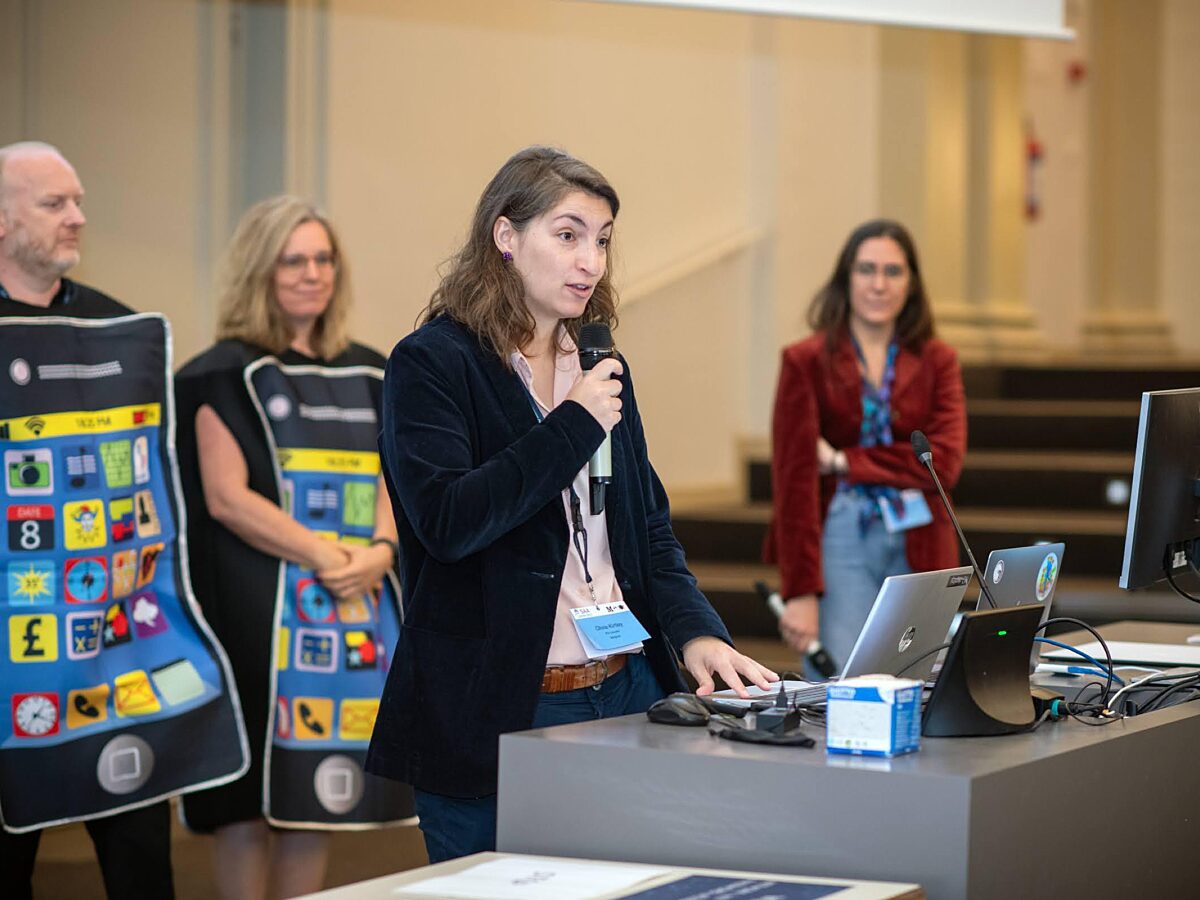From science to connection: How Leuven elevated SAA 2025
“Organising the 2025 edition of the Society for Ambulatory Assessment (SAA) conference in Leuven was a milestone for our research team and for the SAA community as a whole. With over 500 delegates from around the world, it became the largest and arguably most dynamic edition of the conference to date. As local organisers, we experienced first-hand how Leuven’s rich academic landscape, supportive infrastructure, and vibrant city centre can elevate a conference from successful to exceptional.”
Testimony by: Prof. Olivia Kirtley, Prof. Peter Kuppens, Prof. Inez Germeys & Prof Ginette Lafit. (KU Leuven).
- local hosts for SAA 2025 in Leuven.

SAA brings together researchers using ambulatory and real-time assessment methods, such as experience sampling, ecological momentary assessment, and wearable technology, to study human behaviour, physiology, and cognition in everyday life. While these methods are used across many domains, from psychosis to public health, not all users are formally part of the society. That made our aim clear: to host a scientifically rich and welcoming event that would attract not only long-time SAA members, but also a broader interdisciplinary and international audience.
“We estimated we’d reach 300 participants, as in previous years. In the end, we had to close registration early at 500. If we hadn’t, we might’ve reached 600 or more,” recalls prof. Olivia Kirtley.
“It was a huge success, and a bit of a surprise,” adds prof. Ginette Lafit.
A key factor was undoubtedly KU Leuven’s internationally recognised expertise in ambulatory methods. Our growing visibility, combined with a large and active network, brought in researchers from across disciplines and continents. Many came not only to present their work but to explore collaboration with our Leuven-based research centre. Hosting the conference in Leuven gave us a chance to show the depth and breadth of the field and our central role in it.
“People told us: if it’s in Leuven, we have to be there. We felt a real pull,” says prof. Germeys.

But the success of SAA 2025 went far beyond attendance numbers. Together with our organising team, comprising early-career researchers, PhD students, and postdocs, we invested in meaningful innovations. There were social events tailored to young researchers, a keynote by the Early Career Researcher Award winner, and for the first time in the society’s history, a mentorship lunch.
“Given the current international research climate, with funding cuts and instability, it’s more important than ever to create supportive networks, especially for early-career researchers. We wanted them to feel seen, supported, and part of an international community,” explains Kirtley.

The vibrant and accessible setting of Leuven amplified this ambition. From the very first day, delegates expressed appreciation for the walkable city centre, the historical venues, and the informal atmosphere between sessions. Sessions were held in heritage university buildings like the iconic Leuven Grand Aula and the Zoological Institute, complete with whale skeletons and historic lecture halls, which lent a sense of character and continuity to the scientific content.
“We were very worried that the conference would feel too big, too crowded. But the layout worked beautifully,” says Lafit. “The courtyard, the tents, the round lecture halls,... everything created a friendly, almost festival-like vibe.”
Kuppens continues “To be honest, we were quite nervous about the higher than expected attendance and how the conference will turn out. Luckily, the KU Leuven conference office - PCO helped us enormously to come up with the right adjustments and solutions.”

The social programme built on this energy. The conference dinner and party, another SAA first, took place in the Leuven Arts center STUK and drew in delegates of all ages. A DJ and dance floor capped off the evening with enthusiasm and connection that spilled into the rest of the conference.
“It wasn’t just the early-career crowd on the dance floor,” laughs Germeys. “It was everyone. And it was joyful.” “After this, I will never underestimate the networking impact of dancefloors ” joins Kuppens.
“I hope this is one of those conferences that people will remember because of the congenial and friendly atmosphere (aside from the scientific discourse of course)” says Kuppens.
Beyond the event itself, the impact continues to resonate. Collaborations initiated during informal chats over coffee are now taking shape. Sponsors gained a first-hand look at the field’s momentum. And within KU Leuven, the event further solidified her reputation as a global leader in ambulatory methods.
While the SAA typically rotates between Europe and North America, political uncertainty and funding challenges in the U.S. meant the next edition will remain in Europe, in Vienna. Still, the Leuven conference has set a new standard for what is possible in terms of scale, inclusion, and scientific depth.
“We joked that we’d host it again in 2037,” Germeys smiles. “But in all seriousness, this experience has definitely sparked interest in bringing other international meetings to Leuven.”
“The visibility this brought, to Leuven, to our department, and to the methodology, was significant. It’s clear now more than ever that Leuven is one of the leading centres in this field, globally”
- Professor Inez Germeys

We also benefited greatly from the support of the KU Leuven Conference Office - PCO. From helping us secure the right venues to providing tools for abstract management and communications, their guidance and partnership were instrumental.
Looking back, SAA 2025 proved that Leuven offers the ideal mix of academic excellence, logistical infrastructure, and human warmth to host high-level scientific gatherings. It’s a city where researchers don’t just exchange knowledge; they build lasting connections.
Prof. Olivia Kirtley, Prof. Peter Kuppens, Prof. Inez Germeys & Prof Ginette Lafit, Local Hosts for SAA 2025 in Leuven.
